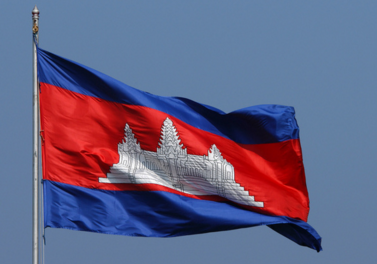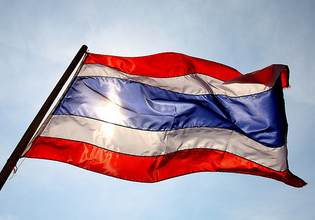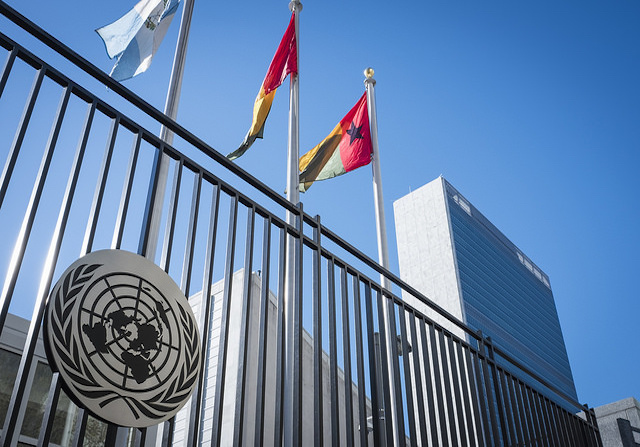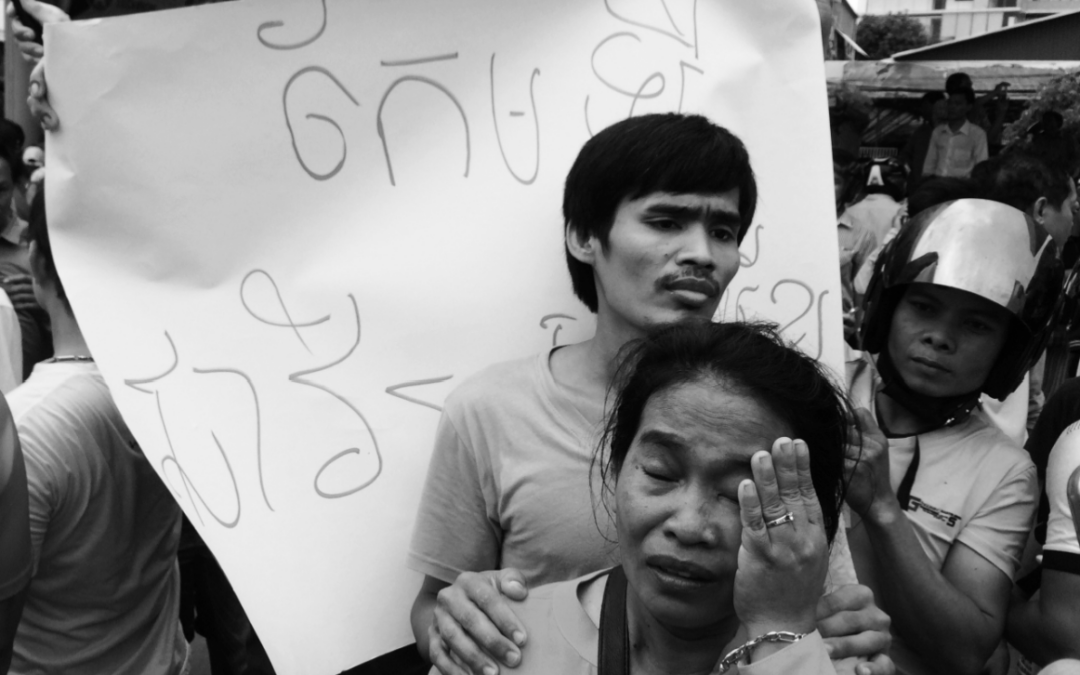
Sep 11, 2017
The 36th Session of the UN Human Rights Council, which commenced today, should adopt a resolution which directly addresses the unfolding human rights crisis in Cambodia, said the ICJ today.
The resolution should also urge the Cambodian government to curb its rights violations, and take steps to ensure that the upcoming elections take place in an environment in which everyone is able fully to exercise relevant human rights.
“It is imperative that the Human Rights Council addresses the rapidly deteriorating human rights situation in Cambodia,” said Frederick Rawski, ICJ Regional Director of Asia and the Pacific.
“The international community should strongly urge Cambodia to curb its human rights violations and adopt a course which fosters an environment that ensures respect for human rights as enshrined in the 1991 Paris Peace Agreements,” he added.
On 8 September 2017, the ICJ, together with Asian Forum for Human Rights and Development (FORUM-ASIA), CIVICUS, Human Rights Watch, International Federation for Human Rights (FIDH), and the World Organisation Against Torture (OMCT), wrote to the Human Rights Council Member and Observer States.
The letter urged them to speak out against the latest abuses clearly during the Human Rights Council session, and for the Human Rights Council to adopt a resolution that explicitly condemns the current situation of violations and accordingly.
1. The resolution should request a report by the UN High Commissioner for Human Rights, in consultation with the Special Rapporteur, that would:
- assess the civil and political rights situation in Cambodia in the pre-election period; and
- identify concrete actions that the Cambodian government and international community need to take to ensure that the conditions in which th election takes place accord with international human rights standards; and
2. The resolution should request the High Commissioner to provide an oral update to the Council at its 37th session in March 2018, and present his report at the 38th session in June 2018; and
3. The resolution should provide that at its sessions in March and June, the Council will hold an Enhanced Interactive Dialogue on relevant issues in Cambodia, including stakeholders such as staff from Cambodia’s OHCHR office, the Special Rapporteur on Cambodia, other relevant UN Special Procedures and members of local and international civil society.
The letter sets out a detailed list of examples of human rights violations which form part of a comprehensive campaign of intimidation, violence and misuse of legal mechanisms in the lead-up to next year’s national election.
These include the recent charging of the leader of the opposition, Kem Sokha, with treason in a case that has all the hallmarks of being politically motivated, the expelling of the leading pro-democracy NGO, the National Democratic Institute, and the intimidation and forced closure of several independent media outlets including the Cambodia Daily and Mohanokor Radio.
The 36th Session of the Human Rights Council, which is being held in Geneva from 11-29 September 2017, will address a number of human rights situations and issues from around the world, including the human rights situation in Cambodia.
At 11am on 19 September 2017, the ICJ, Human Rights Watch and other organizations plan to hold a public side event in Geneva to the Human Rights Council at which the rapidly deteriorating human rights situation in the country will be discussed.
On 26 September, the UN Special Rapporteur to Cambodia is scheduled to report to the Human Rights Council on the implementation of her mandate and the Council is likely to adopt a resolution to extend the mandate of the Special Rapporteur.
The Special Rapporteur will present her report and engage in a formal “interactive dialogue” with States, civil society and Cambodia on the human rights situation in the country (currently scheduled for 26 September).
The UN Secretary General is also due to report on the role and achievements of OHCHR in “assisting the Government and the people of Cambodia in the promotion and protection of human rights”. This report will be discussed, together with other country situations, during a General Debate taking place on 27-28 September.
Contact
Frederick Rawski (Bangkok), ICJ Asia Pacific Regional Director, e: frederick.rawski(a)icj.org
Kingsley Abbott, ICJ Senior International Legal Adviser for Southeast Asia, t: +66 94 470 1345 ; e: kingsley.abbott(a)icj.org
Cambodia-Joint Civil Society letter-Advocacy-Open letters-2017-ENG (text of letter, in PDF)

Aug 30, 2017
The ICJ and other human rights groups sent an open letter to the Royal Thai Government on the 2017 International Day of the Victims of Enforced Disappearances.
The ICJ, Amnesty International, Human Rights Watch, the International Federation for Human Rights (FIDH), Thai Lawyers for Human Rights and the Cross Cultural Foundation express concern at the continuing delay in the amendment and enactment of the Draft Prevention and Suppression of Torture and Enforced Disappearance Act (‘Draft Act’) and the lack of progress in investigating cases of apparent enforced disappearance in Thailand.
The letter urged the Royal Thai government to amend the Draft Act to comply with Thailand’s international human rights obligations and pass it without further delay.
The joint open letter also highlighted the apparent enforced disappearances of Somchai Neelapaijit and Porlajee “Billy” Rakchongcharoen and called for the effective, impartial and independent investigation of these cases and all other cases of enforced disappearance, torture and other ill-treatment in Thailand.
The letter concluded by making seven recommendations to the Royal Thai Government, including to:
1. Ratify the ICPPED and accede to the Optional Protocol to the Convention against Torture;
2. Prioritize the amendment of the Draft Act to bring it in line with international law and thereafter enact it without further delay;
3. Ensure that the DSI effectively implements its obligation to independently, impartially and effectively investigate all reported cases of enforced disappearance, including the alleged enforced disappearance of Somchai Neelapaijit until such time as his fate or whereabouts is established; any individual who has knowledge of the fate or whereabouts of Somchai Neelapaijit or any other alleged victim of enforced disappearance must divulge it immediately;
4. Ensure that the DSI investigates the case of the apparent enforced disappearance of Porlajee “Billy” Rakchongcharoen independently, impartially and effectively until such time as his fate or whereabouts is established;
5. Provide the family victims in both cases with access to effective remedies and reparations, including regular updates on the status of the investigations;
6. Ensure, in the cases of Somchai Neelapaijit and Porlajee “Billy” Rakchongcharoen, that if investigations result in sufficient admissible evidence, those who are reasonably suspected of responsibility are prosecuted in fair proceedings without resort to the death penalty; and
7. Implement the recommendations of the Human Rights Committee as stated in its Concluding Observations on Thailand in 2017, to “bring its legislation and practices into compliance with article 9” of the ICCPR, by ending the practice of arbitrarily detaining persons incommunicado, and to ensure “guarantees against incommunicado detention enumerated in the Committee’s general comment No. 35 (2014) on liberty and security of person”.
Background
Thailand has ratified the International Covenant on Civil and Political Rights (ICCPR) and the Convention against Torture (CAT). In January 2012, Thailand also signed the International Convention for the Protection of All Persons from Enforced Disappearance (ICPPED), reflecting a commitment to prevent and prohibit the crime of enforced disappearance.
On 10 March 2017, Thailand’s National Legislative Assembly approved the ratification of the ICPPED.
However, the Royal Thai Government has not yet set a clear time frame for depositing the treaty with the United Nations Secretary-General as required.
Contact:
Kingsley Abbott, ICJ Senior International Legal Adviser (Bangkok), e: kingsley.abbott(a)icj.org
Olivier van Bogaert, ICJ Director Media & Communications (Geneva), e: olivier.vanbogaert(a)icj.org
Download:
Thailand-ED Day letter-Advocacy-open letters-2017-ENG (full letter in Englsih, PDF)
Thailand-ED Day letter-Advocacy-open letters-2017-THA (full letter in Thai, PDF)
Read also:
ICJ new report No more ‘missing persons’: the criminalization of enforced disappearance in South Asia

Jul 19, 2017
ICJ has joined other leading NGOs in calling on the UN to ensure its NGO Committee fulfils its duties of constructive dialogue with NGOs, after the Committee has failed to convene regular meetings with NGOs as required by its mandate.
Civil society has long held concern that certain political dynamics and working methods of the NGO Committee, including lack of transparency and dialogue, are serving more to obstruct rather than facilitate civil society engagement with the UN, particularly on human rights issues.
The letter therefore begins by welcoming the recent decision of the NGO Committee’s superior body, the ECOSOC, requiring the Committee to webcast its sessions.
As a next step towards improving the situation, the letter notes that the resolution that provides the mandate for the NGO Committee (ECOSOC resolution 1996/31), provides that the NGO Committee is ‘responsible for regular monitoring of the evolving relationship between NGOs and the UN’. The resolution specifically requires that the Committee ‘shall hold’ meetings with accredited NGOs before each of its sessions and at other times as necessary, to discuss ‘questions of interest to the Committee or to the organizations related to the relationship between NGOs and the United Nations.’ The resolution specifies that a report on such consultations is to be transmitted to ECOSOC for appropriate action.
As far as is known to the NGOs, no such meetings have been held, in recent years.
The letter affirms that regular meetings between the Committee and accredited NGOs are essential to build a more constructive relationship between the Committee (as well as the ECOSOC) and NGOs. They could help to address the wide range of challenges faced by NGOs in engaging with the UN.
The letter emphasises that, in the absence of formal opportunities to engage with the Committee, including during the meetings envisaged in resolution 1996/31, on issues of general concern, NGOs have sought to address the NGO Committee briefly at the start of Committee sessions. However, on the two most recent occasions these attempts have been rejected. The letter underlines that the Committee’s refusal to engage with NGOs on general topics of concern is in contradiction to its responsibilities outlined in resolution 1996/31.
Affirming ECOSOC’s duty to ensure that the Committee fulfils its responsibilities fully and effectively, the NGOs therefore request that the ECOSOC remind the NGO Committee of its responsibility to convene at least one meeting with NGOs before each session, beginning with its next session in January 2018.
The full letter may be downloaded in PDF format here: UN-OpenLetter-ECOSOC-NGOCommittee-2017
(photo credit: UN Photo/Manuel Elias, 20 April 2016, creative commons licence, https://www.flickr.com/photos/un_photo/26772166976)

Jul 7, 2017
The ICJ and other organizations have signed an open letter to the Cambodian authorities reiterating their concerns regarding the apparent lack of progress in investigating the human rights defender’s death.
Cambodia-Inquiry killing of Kem Ley-Advocacy-open letters-2017-ENG (full letter in English, PDF)
Cambodia-Inquiry killing of Kem Ley-Advocacy-open letters-2017-KHM (full letter in Khmer, PDF)
Contact
Kingsley Abbott, ICJ Senior International Legal Adviser for Southeast Asia, t: +66 94 470 1345 ; email: kingsley.abbott(a)icj.org

Jul 3, 2017
The ICJ and other organizations call on the Vietnamese authorities to immediately order an independent, impartial and effective investigation into the circumstances surrounding the death of Hoa Hao Buddhist Nguyen Huu Tan, who died in police custody on 3 May 2017.
Vietnam-Death in custody-Advocacy-Open letters-2017-ENG (full text, in PDF)









